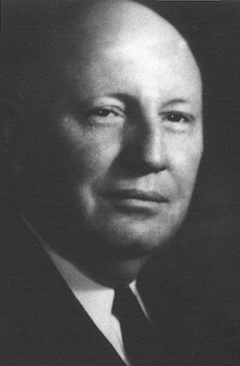The Colonel Bayard Franklin Floyd Memorial Fund in Microbiology is made possible thanks to a bequest from Dixie Westlake Floyd, the wife of Colonel Bayard Franklin Floyd. (The award was formerly known as the Floyd Microbiology Summer Fellowship.)
Floyd Memorial Fund in Microbiology
About Bayard Franklin Floyd
Bayard Franklin Floyd (1882-1945) earned an A.B. in Botany from Indiana University in 1905 and an A.M. in Botany from the University of Missouri in 1907. His wife, Dixie Westlake Floyd (1881-1955), was also a student at the University of Missouri, and the two were married on June 29, 1910.
After earning his Master’s degree, Floyd was hired as a plant physiologist at the Florida Agricultural Experimental Station, working there from 1910-1917, when he left to serve in the U.S. Army during World War I, earning the rank of colonel. He returned to the Florida Agricultural Experimental Station (later called the Citrus Research and Education Center) and worked as a plant physiologist there until 1920. Floyd was well known for his research on fertilization methods of citrus trees in Florida soils and contributed significantly to the Florida citrus industry when he discovered that the state’s trees were suffering from copper deficiency, resulting in die-back. In 1921 he was named vice president of the Wilson and Toomer Fertilizer Company, a position he held until his death on November 8, 1945.
Floyd served as Secretary of the Florida State Horticultural Society for 27 years. He also served on the Research Advisory Committee of the Florida Citrus Commission and on the Florida Agricultural Research Bureau. Floyd was a Fellow of the American Association for the Advancement of Science and was a member of the American Society of Plant Physiology, the American Chemical Society, and the American Society of Agronomy. He was inducted into the Florida Citrus Hall of Fame in 1962.

 The College of Arts
The College of Arts